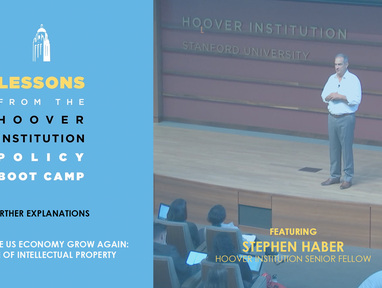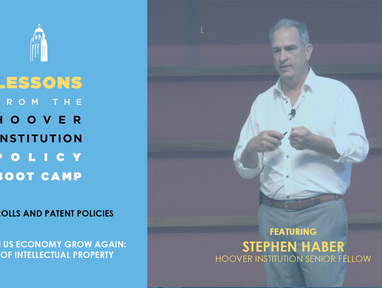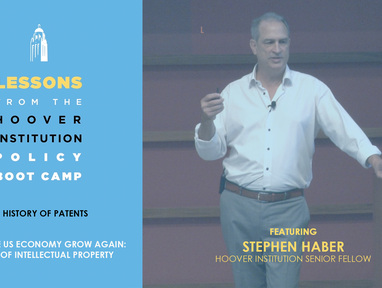Stephen Haber is the Peter and Helen Bing Senior Fellow at the Hoover Institution, the A.A. and Jeanne Welch Milligan Professor in the School of Humanities and Sciences at Stanford University, and senior fellow at the Stanford Institute for Economic Policy Research. In addition, he is a professor of political science, professor of history, and professor of economics (by courtesy).
Haber has spent his career investigating why the world distribution of income so uneven. His papers have been published in economics, history, political science, and law journals. He is the author of five books and the editor of six more. Haber’s most recent books include Fragile by Design with Charles Calomiris (Princeton University Press), which examines how governments and industry incumbents often craft banking regulatory policies in ways that stifle competition and increase systemic risk. The Battle Over Patents (Oxford University Press), a volume edited with Naomi Lamoreaux, documents the development of US-style patent systems and the political fights that have shaped them.
His latest project focuses on a long-standing puzzle in the social sciences: why are prosperous democracies not randomly distributed across the planet, but rather, are geographically clustered? Haber and his coauthors answer this question by using geospatial tools to simulate the ecological conditions that shaped pre-industrial food production and trade. They then employ machine learning methods to elucidate the relationship between ecological conditions and the levels of economic development that emerged across the globe over the past three centuries.
Haber holds a Ph.D. in history from UCLA and has been on the Stanford faculty since 1987. From 1995 to 1998, he served as associate dean for the social sciences and director of Graduate Studies of Stanford’s School of Humanities and Sciences. He is among Stanford’s most distinguished teachers, having been awarded every teaching prize Stanford has to offer.







